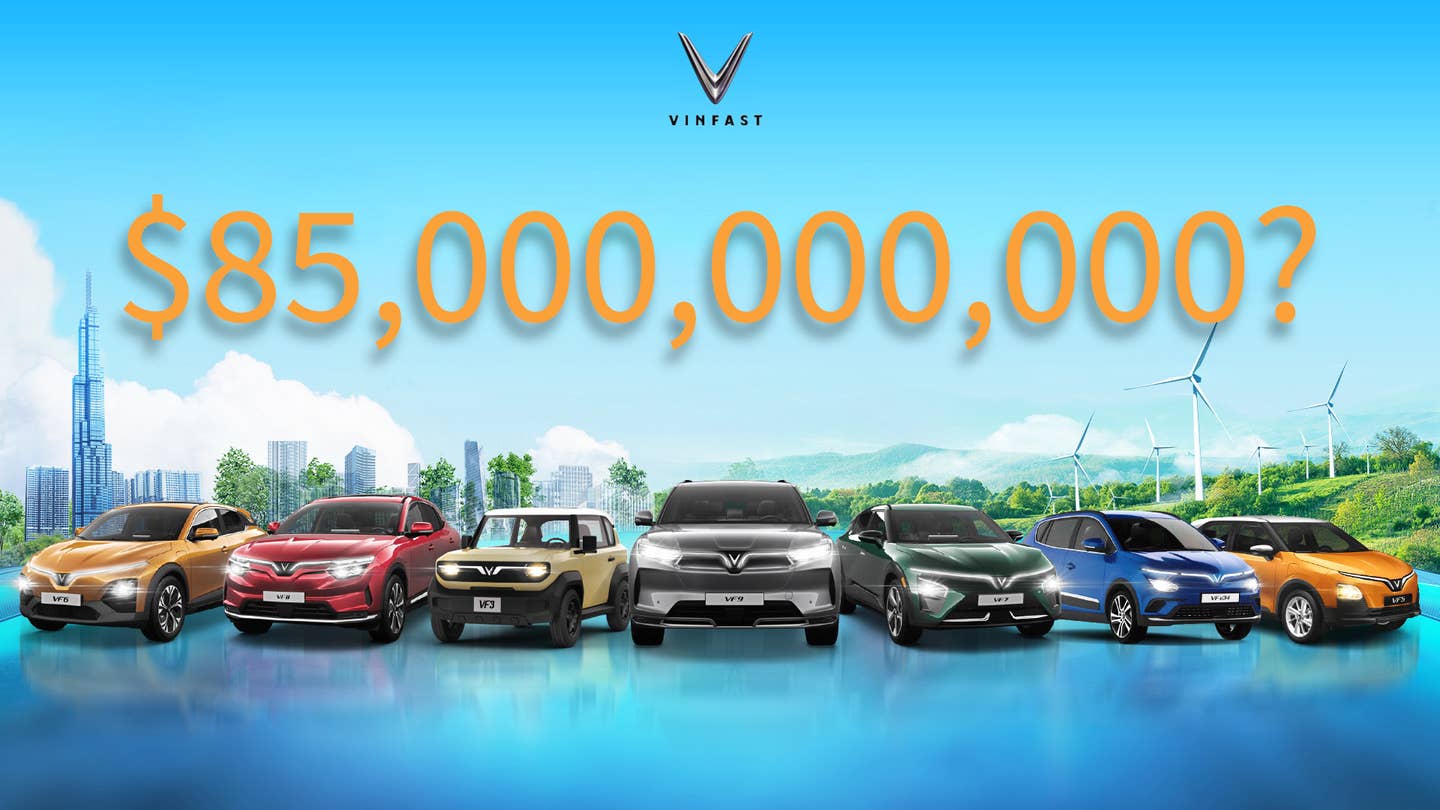You hear that dripping? It’s Wall Street’s brains leaking out its ears when it looks at Vinfast.

On Tuesday, Vietnam’s first major automaker Vinfast went public via SPAC, catapulting its valuation to $85 billion. That makes it more “valuable” than any of Detroit’s Big Three, more than VW, and more than four times what Rivian’s valued at. It’s lunacy. No, it’s more than that. It’s a reminder that the stock market is a fantasy world, where everything is made up and the product performance doesn’t matter.
Vinfast is the first significant automaker to emerge on the world stage from Vietnam, a fast-growing but small economy that has not historically been an industrial powerhouse. The company was founded (and is majority-owned) by Pham Nhat Vuong, today the richest man in Vietnam, and got its start manufacturing BMW-based sedans and crossovers. Recently, Vinfast branched out into original EVs, like the VF8 that launched last year.
And if reviews are to be believed, they’re terrible.
2023 Vinfast VF8. Vinfast
Vinfast’s public image isn’t great, and neither are its balance sheets. According to The Guardian, Vinfast lost $2.1 billion in 2022, and it’s on track to burn even more in the current financial year. As of the end of Q1, it had lost $598 million, up from $411 million in the red over the same period last year per U.S. News & World Report. Some of this is due to capital expenditure, like on Vinfast’s planned North Carolina factory, but there’s also the fact that sales aren’t so hot.
In 2022, Vinfast sold only about 7,400 cars according to Reuters, all of them in Vietnam. This year, its target is a much loftier 50,000 globally, with hopes high for Vinfast’s launch in the valuable U.S. market. As of July though, Automotive News reported Vinfast had only sold 128 cars in the U.S. after five months on sale. According to Vinfast itself, 45 of those were on day one, or more than a third.
2023 Vinfast VF8. Vinfast
But of course, none of this matters. Vinfast’s stratospheric valuation doesn’t stem from a careful analysis of its business fundamentals. If stock value was the result of a rational market, Tesla wouldn’t be valued at nearly triple what Toyota is despite delivering an eighth as many cars in 2022 and facing federal investigations into its brand-defining products.
Vinfast’s market cap blossoms purely from hype, from early investors’ hope that the company might be worth even more someday. Similar “de-SPAC” offerings like it have a pattern of fizzling according to Bloomberg, which notes a median falloff of 45 percent from such offerings’ market highs this year. Vinfast’s valuation has also been inflated by the low availability of its stock, 99 percent of which remains in its founder’s hands. You’d be hard-pressed to engineer a more unrealistic bubble in valuation than Vinfast’s without resorting to fraud—which plenty of EV startups have.
At the same time, financial outlets like WSJ and Barron’s are tracking Vinfast’s stock value in a plummet as investors deem shares too expensive.
When you get down to it, stock market valuations are extrinsic to a business’s prospects; they’re mere quantifications of stock traders’ imaginations. No matter how well-informed the investment, if it isn’t insider trading, then it’s gambling. And the house always wins.
Got a tip or question for the author? You can reach them here: james@thedrive.com

